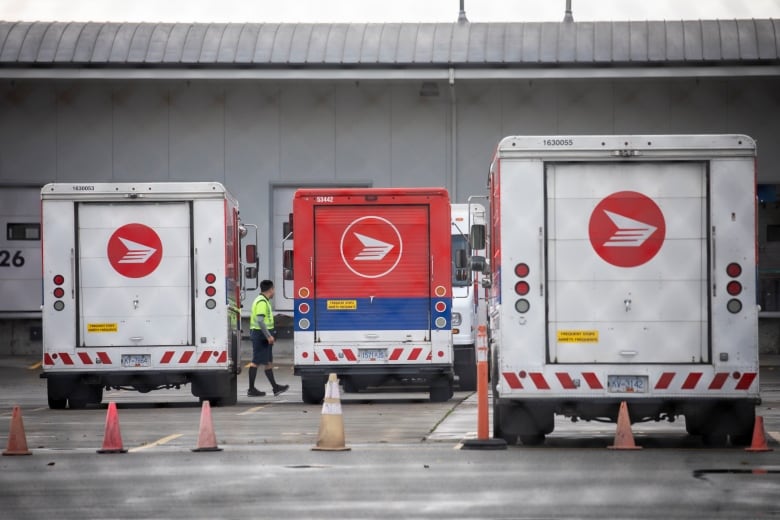
Canada Post has stopped delivering mail across the country because tens of thousands of postal workers are on strike over wages, working conditions and other issues. The shutdown will affect millions of Canadians and businesses nationwide, just as the busy holiday season is getting underway.
Here’s what you need to know.
What does this mean for deliveries?
Canada Post isn’t processing or delivering any mail and parcels as long as the strike lasts. Some post offices will also be closed. For items that are already in the mail, service guarantees could be affected.
It “may take some time” for mail service to return to normal even after the strike ends, according to a statement from the corporation.
55,000 Canada Post workers are on strike, a move that will force businesses and consumers to seek shipping alternatives ahead of a busy holiday season.
Can I drop letters or parcels in the mail in the meantime?
No. Canada Post has said it isn’t accepting new items until the national disruption is over.
Jim Bookbinder, a management sciences professor at the University of Waterloo, said an alternative courier service could be worth considering if you need to have an important piece of mail delivered on time — or ensure a gift arrives in time for the holidays.
How much does this affect rural communities?
They will be hit particularly hard. Rural and remote communities across the country rely solely on Canada Post for deliveries because many private, for-profit courier companies don’t spend the money to service those areas.
Will I still get my assistance cheques from the government?
Canada Post and the union have agreed to continue delivering government benefit cheques — including Old Age Security, the Canada Child Benefit and the Canada Pension Plan — during the labour disruption. A statement said seniors and others who rely on the mail service will still receive timely financial assistance.

The corporation said all November cheques should be delivered on Wednesday, Nov. 20.
Service Canada has urged Canadians to set up online accounts and direct deposits so they can receive their benefits without delay.
What about bank statements?
Several Canadian banks have reminded customers to switch to online statements and e-banking to manage statements, bills and other banking communication.
CIBC said customers are still required to make regular payments and meet financial obligations on credit cards, loans and mortgages when the post is disrupted. Other banks, including Scotiabank and BMO, have issued similar statements.
How much will this hurt small businesses?
The Canadian Federation of Independent Business (CFIB) said 80 per cent of the country’s small businesses rely on Canada Post for shipping goods, invoicing and receiving payments.
President Dan Kelly said the strike is “really bad timing” and a terrible blow to small businesses, especially after the port strike in B.C. earlier this year.
“We’re just getting the ports back in operation and now retailers may start to receive goods again that were frozen in the ports for a while, but now they’re going to struggle to get them out to their end consumer because of the postal strike,” he told The Canadian Press.
- How does the strike affect you? What should be done about it? Leave your story, questions and opinions here and you might be featured on Cross Country Checkup’s Nov. 17 show.
Kelly said the strike will also freeze business invoices already travelling through the mail system, sending people “scrambling to try to get money.”
Bookbinder, the University of Waterloo professor, said retailers could consider alternatives like FedEx or UPS, but noted mailing parcels would likely cost 30 to 40 per cent more in shipping.
Can the government order workers back to work?
The government has that power but didn’t have plans to use it as of Friday morning.
“I’m not looking at any other solution other than negotiation right now,” Labour Minister Steven MacKinnon told reporters in Montreal.
“Every day is a new day in collective bargaining, and we are going to continue to support the parties in any way we can and make sure that they are able to try and get a negotiated agreement.”





